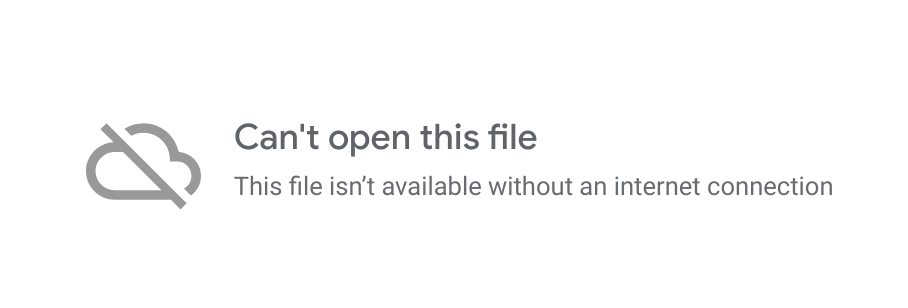I hate the internet. I think I hate it even more when it’s gone.
As I sit against a wall in the campus center, watching my Chromebook try its hardest to find the printer that sits just a few feet away, I am furious.
Something about an endlessly spinning circle in place of a successfully-downloaded document or a functioning Canvas page invokes a different kind of frustration, one that ought to be easily alleviated on a college campus. My thoughts during this printing purgatory are like that spinning circle, in a way; spiraling indefinitely, with no signs of improvement.
Later that night as I try to fall asleep, YouTube is but a blank gray screen on my phone, with no hint of connecting any time soon. Yet again the Wi-Fi taunts me, asking me to choose between staring at this blank screen, hoping that something will change, or going to sleep in silence in the presence of my own thoughts.
Those of us who are regular users of the social internet have gotten used to the dull, neverending hum of connection. In the background of nearly everything I do in my free time, for example, there is music or a podcast or some form of comfort media protecting me from rogue thoughts as well as the struggle that is focused attention.
I realize — in the brief and beautiful moments when I can type a fully coherent thought without a popup reminding me that the place I am in is, actually, without service — that this relationship with the internet is a toxic one. In fact, I’m not sure it was ever a good one to begin with.
The apps that grab our attention and keep us hooked work exactly as they are intended to; the unpredictability, the emotional highs and lows of the scroll and the fear of missing out on something new that’s waiting down the social media rabbit hole are the essence of these programs’ design. Plenty of people have already written about this feeling in better depth than I could, some from this very paper.
It’s interesting in this context, though, because now there is no choice in the matter. Whether or not you want to engage in the endless scroll or answer your dreaded discussion post — you can’t. When the choice is removed, what do we do?
Most college students today grew up with technology access integrated into every facet of life. Whether it was for school or play or, in later years, friendships and relationships, the internet has been a constant companion. We grew with it, and it grew with us.
It’s annoying then that so much of the discourse around internet use — specifically when it comes to young people — treats the issue of hyperconnectivity as a personal one. If you can’t “unplug,” that’s a you-problem.
But the access that many of us have had to this infinite source of content can’t just be turned off without consequence. That’s why it’s so hard to break a compulsive phone-checking habit or limit one’s screen time. The internet “functions on a variable ratio reinforcement schedule,” meaning that the randomness of the scroll and the uncertainty of what will come next is similar to the feeling that comes from gambling, according to the National Library of Medicine.
This past week of no Wi-Fi has only confirmed this idea. A lack of Wi-Fi is not a hurdle so much as it is a mountain; how on Earth do you grapple with the reality of having this steady drip of dopamine taken away? On top of that, how are you supposed to be fine with the fact that your reputation as a student sits on the other side of a loading screen?
This moment revealed feelings that I would not have experienced had the decision to disconnect not been made against my will. Rather than feeling liberated or mindful, I felt angry. I felt fearful of missing out — on conversations, sure, but also on assignments and other obligations. If my record as a student and a friend and a daughter is the result of turning in assignments or responding to texts consistently, then this disconnect is anything but relaxing. Like that spinning circle, my thoughts move around and around in a spiral, triggered by the simple inability to print a class reading.
These feelings are, at least for me, proof that using the internet is anything but a choice. An inconvenience shouldn’t feel so urgent and so anxiety-inducing. What could have been a sigh of relief — we’re all in the same boat here, after all — was instead a new point of stress for myself and others I’ve spoken to. Even when we don’t have the option to use this thing that looms over us, there is still the expectation that we should, as using the internet has become second nature.
So here’s hoping that our Wi-Fi issues are resolved quickly. Constant connection is its own kind of stress, but at least it comes with the illusion of choice.
Categories:
Lacking connection
No Wi-Fi is more than an inconvenience
Story continues below advertisement
0
Tags:
More to Discover
About the Contributor

Sam Heilmann, Opinion Editor
Sam Heilmann is a sophomore from Johnstown, PA. She is majoring in Communications. This is her second year on the Campus staff, and her first as Opinion Editor. When she isn’t writing for The Campus, she enjoys painting, listening to music and spending time with her friends.






